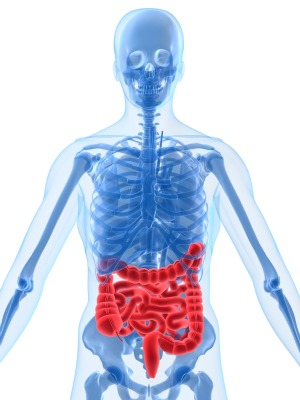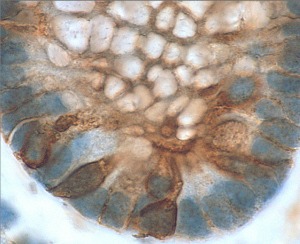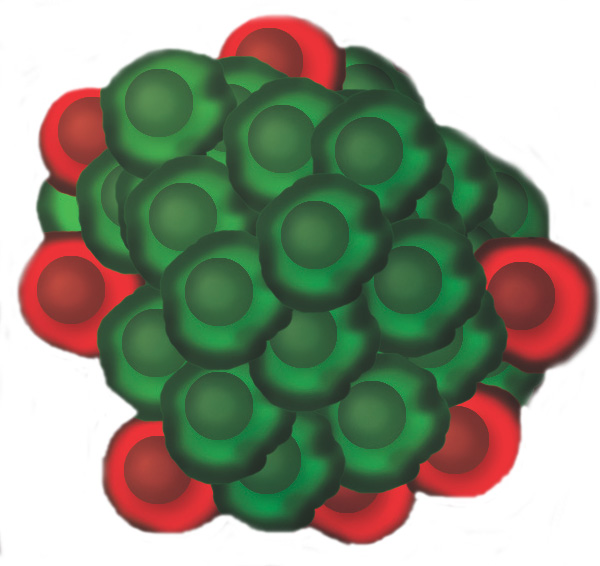Health And Medicine
-

Pathway to colon cancer progression
Molecular players involved in colon cancer progression could provide new biomarkers to indicate invasiveness and prognosis. Read MoreDec 1, 2011
-

Autoimmune drugs don’t boost infection risk: study
A Vanderbilt study shows that a class of drugs used to treat autoimmune diseases does not increase the chance of hospitalization for serious infection. Read MoreNov 18, 2011
-

Exercise fights fatty liver
(iStock) Fatty liver, a reversible condition of fat accumulation in liver cells, can result from excessive alcohol consumption, obesity, type 2 diabetes, or metabolic disorders. Exercise can reverse this process, but the mechanisms underlying this effect are not clear. Because exercise is known to stimulate the action of glucagon (a… Read MoreNov 18, 2011
-

Skeletal defects in genetic disorder
A new mouse model provides a tool for testing novel therapeutic approaches for neurofibromatosis. Read MoreNov 18, 2011
-

Estrogen treatments increase gray matter in brain
Short-term hormone replacement therapy offers potential benefit for cognitive functioning. Read MoreNov 18, 2011
-

Alcoholics’ ‘injured brains’ work harder to complete simple tasks
Alcoholic brains must work harder to complete simple tasks. Read MoreNov 15, 2011
-

Averting a future oncologist shortage
Providing increased mentorship, research opportunities and a nurturing, intellectual environment during fellowship training may help reduce a projected shortage of academic hematologists and oncologists. Read MoreNov 11, 2011
-

Balancing act in the gut
Vanderbilt researchers have identified an antigen important to balancing the immune response to bacteria in the gut. Read MoreNov 11, 2011
-

Project seeks to apply gene testing to drug prescribing
The U.S. Centers for Disease Control and Prevention has awarded Vanderbilt researchers a two-year, $1 million grant to Vanderbilt to develop a model for applying genomic testing to drug prescribing in “real-world” settings. Read MoreNov 11, 2011
-

Breastfeeding problems can be linked to a tied tongue
A simple procedure can correct ‘tongue-tie,’ a commonly missed condition that could prevent newborns from breastfeeding properly. Read MoreNov 10, 2011
-

Let there be light and melatonin
Light and the hormone melatonin may play important roles in the developing brain. Read MoreNov 4, 2011
-

Trauma program’s infection-fighting efforts show results
Implementation of antibiotic stewardship tactics as part of infection reduction campaigns sees significant results. Read MoreNov 4, 2011
-

VUCast Newscast: Vanderbilt on “Grey’s Anatomy”
This Week on VUCast, Vanderbilt’s weekly newscast highlighting research, experts, students, sports and everything Vanderbilt: A Vanderbilt doctor’s amazing surgery lands on “Grey’s Anatomy” Scientists create a breakthrough bug repellant A Vandy minister’s actions honored by the White House [vucastblurb] … Read MoreNov 4, 2011
-

Vanderbilt study finds no heart risk in ADHD medications
Attention Deficit Hyperactivity Disorder (ADHD) medications do not increase the risk for heart disease or heart attack in children and young adults, according to a Vanderbilt study of 1.2 million patients taking drugs including Ritalin, Adderall, Concerta and Strattera between 1998 and 2005. Read MoreNov 2, 2011
-

Lung disorder drug regimen found harmful
Longtime treatment for IPF ineffective and even dangerous. Read MoreOct 31, 2011
-

Protein family key to aging linked to suppressing tumors
The list of aging-associated proteins known to be involved in cancer is growing longer, according to research by investigators at Vanderbilt-Ingram Cancer Center and the National Institutes of Health. Read MoreOct 28, 2011
-

Vanderbilt doctors to screen patients taking statins for genetic risk factors
Vanderbilt University Medical Center doctors announced today they will begin screening patients who take commonly prescribed statin drugs for a rare genetic variation that can increase risks for side effects from these drugs such as muscle aches, kidney damage and even death. Read MoreOct 28, 2011
-

Stopping colitis, STAT
Study suggests a new therapeutic target in ulcerative colitis. Read MoreOct 27, 2011
-

Growth factor boosts beta cells
A growth factor may help grow transplantation-quality pancreas cells for treating diabetes. Read MoreOct 21, 2011
-

Information flow reduced in psychosis
Bipolar depression and schizophrenia share patterns of changes in neurons that regulate information flow, new research shows. Read MoreOct 21, 2011